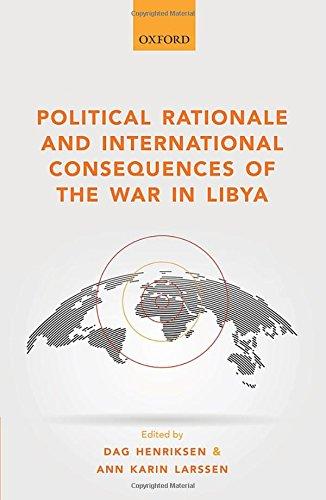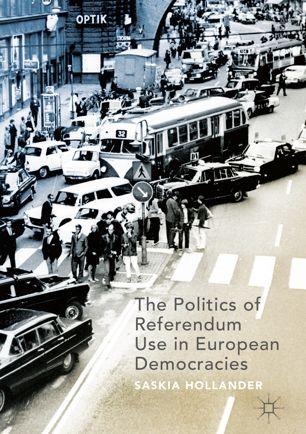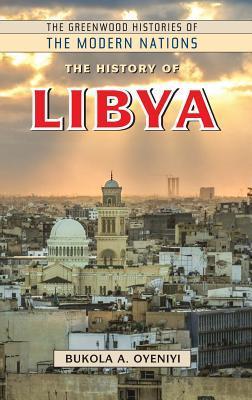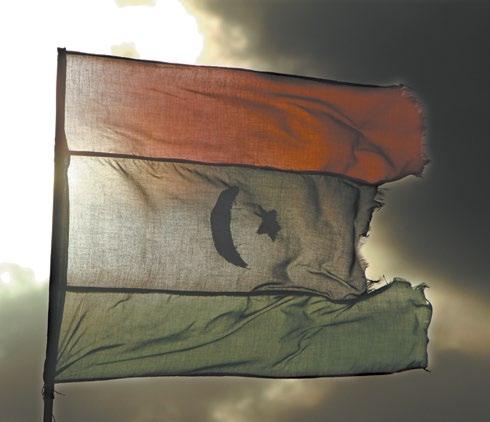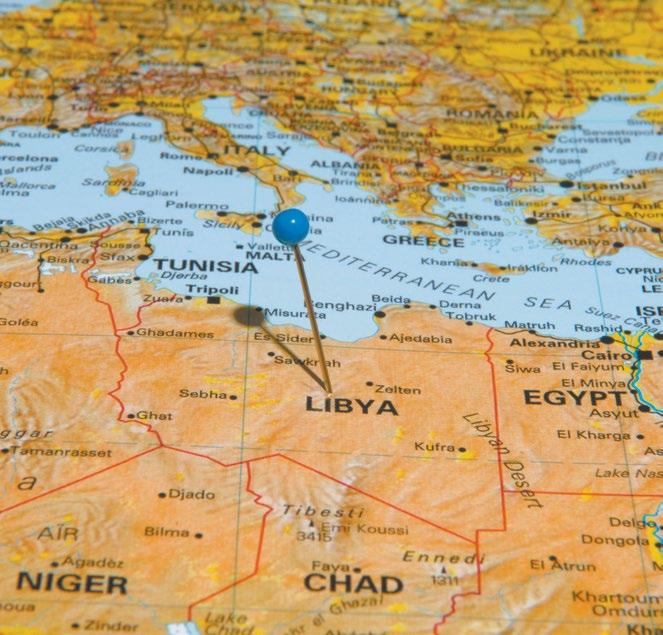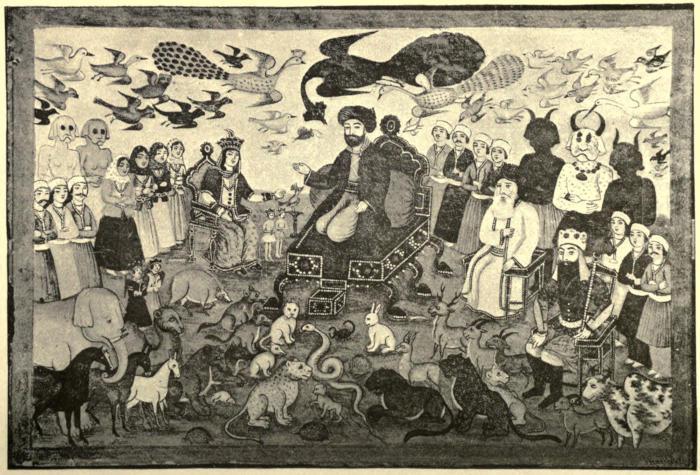A
CKNOWLEDGMENTS
This book would never have reached completion without the support of others. I would like to express gratitude to all those who made positive contributions to the research conducted during my time in the graduate program of Johns Hopkins University’s School of Advanced International Studies (SAIS) and beyond. I am deeply indebted to Professor Erik Jones, and to Professor Karim Mezran, Professor Dirk Vandewalle, Professor Camille Pecastaing and Professor David P. Calleo. I thank them for the expertise and skills transferred as well as the guidance, trust and friendship given. With regard to the research, many people gave me assistance in several archives. I thank Anna Landolfi of ENI and Flavia Magnolfi of UNICREDIT in particular. I also want to mention two women whose professional and academic “tutelage” and encouragement—probably without them even realizing it—have been very influential in putting me on my current path: Professor Beatrice de Graaf and Ambassador Stella Ronner-Grubačić. My gratitude also goes out to Dr. Timo Behr, who has shown tremendous patience with me and who has been supportive throughout the process of getting this text ready for publication. I am extremely grateful to my parents, Ruud van Genugten and Marianne Gevers, for their general and generous support. I thank my brother Paul for his comradeship, his inexhaustible wit and his great editing skills and I thank my brother Richard, who has remained with me in spirit during this entire project after teaching me that one should live in the moment,
and make it matter. I would like to add that the research that formed the basis for this book would not have been possible without the financial and material support of SAIS Johns Hopkins University—in particular the Bologna Center, the Compagnia di San Paolo, Mr. Robert J. Abernethy and the Royal Dutch Institute in Rome.
CHAPTER 1
Introduction
Libya has a short but volatile history. The desert lands between Egypt and Tunisia have undergone major changes ever since Italian colonialism imposed on the local inhabitants the idea of belonging to a territory with defined boundaries and a centralized authority. After the Second World War, external powers established Libya as an independent state, a decision made in the framework of the United Nations (UN). The UN itself was, back then, an experimental way of trying to impose on international politics some form of global governance through interstate consultation mechanisms. In the newly invented United Kingdom of Libya, a reluctant, British-backed monarchy replaced ruthless colonial rule. After 18 years in power, in 1969, a group of young military officers overthrew the rule of King Idris al Sanussi and replaced it with a radical, overenthusiastically authoritarian and anti-Western republic.
Mu’ammer el-Qaddafi then brought 42 years of oppressive stability to Libya, based on a cult around his personality, around shared grievances against the West and the forceful suppression of dissent. His regime disposed of an effective manipulative mechanism to retain authority as it could control the top-down redistribution of wealth from the export of natural resources.1 By consequently absorbing the great majority of
1 See for example Hazem Beblawi, “The rentier state in the Arab world”, in Giacomo Luciani (ed), The Arab state, University of California Press, 1990, pp. 85–98; and Michael L. Ross, “Does oil hinder democracy?” World Politics 53 (3) 2001, pp. 325–61. Applied to
© The Editor(s) (if applicable) and The Author(s) 2016 S. Van Genugten, Libya in Western Foreign Policies, 1911–2011, DOI 10.1057/978-1-137-48950-0_1
1
Libyans as employees of the state bureaucracy, the regime made a critical mass dependent on its goodwill. Political opposition could not only lead to prison or worse, but also to job loss or the withholding of social benefits affecting entire families. At the same time, Qaddafi knew to keep the Libyan bureaucracy and especially the security institutions in a state of continuous flux. The chaotic changing of institutions and a myriad of reporting lines was part of a strategy to mitigate the risks of coup attempts as it prevented the development of alternative power centers within state institutions.
Libya’s fate turned again when in 2011, in the wake of popular uprisings in neighboring Tunisia and Egypt, Britain and France initiated and led an intervention that empowered a plethora of Libyan opposition groups, both abroad and within the country. In the absence of any wellestablished or uncontested state structures, the opposition organized itself through local, informal networks of loyalty, establishing local militias and local governance structures. The short-term political objective of toppling Qaddafi initially united the rebels. However, beyond that shared goal lingered irreconcilable visions of what a future, post-Qaddafi Libya should look like. The international coalition that ultimately triggered the downfall of Qaddafi and his regime expected their military intervention and the following political transition to be short and successful, with a change of regime causing few negative regional and global consequences.
Ideas about developing a new Libya were simplistic: the West and its partners would back the National Transitional Council (NTC) and the loosely related militia. The West expected the Libyans – wealthy and highly educated on paper – to need little postwar assistance and imagined that they would work together towards a more liberal and more business-friendly future. Unfortunately, the assumptions underlying that best-case scenario turned out to be utterly flawed and post-Qaddafi Libya descended into civil war. Libya remained marred by centrifugal forces pulling the country apart. Once again, the United Nations had become the framework through which the international community tried to find common ground between the warring parties and the different regions, in order to prevent the break-up of its own creation – the independent, unified state of Libya.
Libya, see Dirk Vandewalle, Libya since independence: oil and state-building, I.B. Tauris, 1998.
The history of Libya shows that, throughout time, foreign powers have played a significant role in shaping its institutions and its policies. Intruders, interveners and enablers included Romans, Ottomans, Italians, British, French, Americans, Turks, Egyptians, sometimes Africans and more recently Gulf Arabs and those claiming to build an Islamic State. Sometimes, external threats and interventions helped unite the different tribes, families and classes of Libya. This was, for example, the case during the resistance and opposition to colonial control and decades later to Qaddafi’s rule. At other times, foreign backing of rival factions within Libya nurtured chaos, polarization and civil strife instead. Egyptian interference during the monarchical rule is a case in point, as is the international support during the years of troubled political transition after 2011.
One of the objectives of the 1969 coup of the Revolutionary Command Council (RCC), masterminded by Mu’ammer el-Qaddafi, was to rid Libya of all detrimental foreign influences. A strong advocate of (Arab) nationalism, Qaddafi believed that his mission was to erase external influences in order to let a true Libyan spirit blossom. One complication to that vision was that Libya, as a unified place its inhabitants could identify with, had so far only existed in the imagination of external powers and a minority of Libyans. Upon its actual creation, first during Fascist Italian rule and then in the framework of the United Nations, the populations of the former Ottoman provinces Tripolitania, Cyrenaica and the Fezzan were hardly consulted on their future path and the establishment of new political, economic and social institutions. Centralized Libyan state authorities never exerted anything close to full control over the country’s territory or over those living within its (disputed) borders. Even Qaddafi soon figured out that in order to consolidate his power, rather than creating a strong nation, the more successful strategy was one of managing a weak nation, using local, tribal and religious identities and loyalties as chips in a complicated game of balancing power relationships within the country.
At the same time, Libyan elites had always relied heavily on foreign donors, advisers and consultants, both with regard to domestic and foreign policies. Up until 1969, as a result of the dominant British and American influence during the first decades of independence, Libya was often depicted as a plaything or a puppet of the West. And indeed, without the external financial, material and political support received, the monarchy would most likely not have been able to remain in power for as long as it did. Nonetheless, the same seemed to hold true for Qaddafi’s regime. Qaddafi was well aware of the fact that, despite his dreams and ambitions,
Libya could not do without its foreigners. His regime could put on a show of hostile rhetoric and symbolic acts, but to keep Libya’s oil-based economy running, it also had to hold on to strong and structural ties with the outside world. Hoping to at least reduce the influence of the West, Qaddafi focused on building up relations in the Arab world and other post-colonial places. Where he failed to create serious synergies with fellow Arab leaders, he was able to build some excellent relations in postcolonial Africa. While useful to gather support for votes in the United Nations, unfortunately, these African supporters barely provided Qaddafi with the global standing and admiration his megalomaniac personality longed for. Ultimately, Qaddafi found himself dependent on those powers he claimed to resent most – the United States, the United Kingdom, France and Italy. He needed them for economic as well as political security. The more that support for his rule eroded at home, the more he had to rely on the goodwill of foreign governments and the provision of external guarantees. The 2011 revolution was indubitably impelled by domestic concerns and grievances, but the withdrawal of external support and the subsequent international intervention were decisive for the outcome of these local rebellions.
This book traces the history of the bilateral relations between Libya and those Western governments most vital to its political and economic development – the United Kingdom, Italy, France and the United States. Over the past century, these foreign powers most clearly shaped the path of Libya as a state. In 1911, Italy was the first European power to establish itself in the Ottoman province of Tripolitania and, less effectively, in Cyrenaica and parts of the desert hinterlands of the Fezzan. Britain was second in establishing a strong presence. From the time London set up the British Military Administration (BMA) in the eastern part of Libya during the Second World War, it knew to expand its reach gradually, leaving lasting traces on Libya’s governance system. Also during the Second World War, France was granted control over the southern desert, using it predominantly as a springboard for its francophone possessions in the Maghreb and Sub-Saharan Africa. The United States, in particular under the Administration of President Ronald Reagan, contributed to the radicalization of Qaddafi’s regime, including through the imposition of economic and military operations. The story told here is that of a longer-term history that holds the respective Western foreign policies towards Libya against the light of changing global power settings. At the surface, the picture of Libya and its relations to the outside world seems one of extreme
volatility and transformation, a rollercoaster going back and forth between consensus and conflict. Scratching that surface, a more complex, opaque web of direct and indirect interests and interdependencies emerges, actually exposing a substantial level of continuity and predictability.
The argument of this book is that, throughout history, the globe’s most powerful international contenders have regarded Libya as a peripheral state, even after the discovery of vast quantities of oil. More than a century ago, the Great Powers of Europe considered the Ottoman provinces of Tripolitania and Cyrenaica as the scraps of the imperialist scramble for Africa.2 Britain predominantly focused on the east and southeast of the continent (Egypt, Sudan). The French concentrated on the west and southwest instead (Tunisia, Algeria, Niger and Chad). The desert territories in the middle constituted a natural, scarcely inhabited buffer between the historical spheres of influence of these two key European Imperial Powers.3 Italy, as the least of the Great European Powers and treated as inferior to Britain, France, and Germany, was arguably the only country that really cared for control over the Libyan territories.4 Libya belonged neither here nor there and never fell under the full protection of any significant global or regional powerhouse. A weak national identity, weak institutions and its peripheral position have made the country vulnerable to external influences. As a result, it repeatedly falls prey to foreign powers wanting to flex their muscles without causing any serious global reverberations. As this book narrates, this was the case in 1911, in 2011 and several times in between.
2 A vast body of literature exists on colonialism in Africa, to which this text, unfortunately, cannot do justice. See for example Thomas Pakenham, The scramble for Africa: White man’s conquest of the Dark Continent from 1876 to 1912, Avon Books 1991; William H. Worger et al. (eds.), Africa and the West, Oxford: Oxford University Press, 2010; and Richard Reid, A history of modern Africa: 1800 to the present, John Wiley and Sons, 2012.
3 See Joseph S. Roucek, “The geopolitics of the Mediterranean”, The American Journal of Economics and Sociology, 12 (4), 1953, pp. 347–354.
4 Richard Bosworth, Italy, the Least of the Great Powers: Italian foreign policy Before the First World War, Cambridge: Cambridge University Press, 1979.
CHAPTER 2
Libya’s Origins: The Colonial Scraps of North Africa
Prior to the 1911 conquest by the Italians, the territories now known as Libya displayed hardly any characteristics of a state in the contemporary sense of the word. While Tripoli and Benghazi could be regarded as somewhat urbanized centers, informal frontiers and local ties based on tribal dynamics and blood linkages prevailed in the vast majority of the desert countryside, where national or class loyalties were alien concepts. Still, regardless of the difference in units around which social and political life was organized, patterns of political behavior resembled those in Europe and elsewhere: groups acted out of a self-defined interest. They formed alliances and took sides according to what was opportune in light of key political interests, ranging from tribal survival, territorial, religious or economic expansion to group or personal prestige.
For several centuries, the inhabitants of the Libyan provinces had invested in a mutually beneficial alliance with the Ottomans. The dwellers of the coastal plains of Tripolitania and Cyrenaica had invited the Sultan’s forces to take up a governing role in their lands. The rulers of Constantinople provided the territories with general protection against external enemies, while the local administration of the many different communities and villages remained in the hands of indigenous rulers and tribal chiefs. From the middle of the sixteenth century to the early eighteenth century, the main threat came from Europe, as Europeans set out to sail all the globe’s oceans and seas to discover new products and occupy new lands. The inhabitants of North Africa perceived the intrusions as Christian attacks,
© The Editor(s) (if applicable) and The Author(s) 2016 S. Van Genugten, Libya in Western Foreign Policies, 1911–2011, DOI 10.1057/978-1-137-48950-0_2
7
and tribal leaders relied on the better-equipped Ottomans to help fend off incursions.1
The situation changed when local rulers lost the focus of a common enemy and instead started to fight each other and the Ottomans. By the early eighteenth century, the territories experienced a short tribal war that ended when Ahmed Qaramanli, a defected janissary of the Ottoman Sultan, murdered the Ottoman governor in Tripoli and declared himself Pasha. Making the title hereditary, he virtually united the lands around Tripoli into an independent entity that his family would rule from 1711 to 1836. At moments, its authority stretched to Benghazi in the east and into the Fezzan in the south. Constantinople witnessed the assertiveness of the Qaramanli with weariness, but decided that these peripheral provinces were not worth the battle. The Qaramanli financed their rule through control over the desert trade routes and by taxing their subjects. They found another source of income in requesting protection fees from foreign ships in order to sail safely through the Mediterranean.2 In one of the most often-narrated diplomatic incidents of that time, the Americans refused to pay. Consequently, in 1801, Yusuf Qaramanli initiated a war with the United States that brought four years of hostilities, which included the capture of the American sailing frigate USS Philadelphia by Qaramanli forces. As part of the strategy to win the war, the US Consul to Tunis, William Eaton, proposed an alliance with Yusuf’s brother Hamed. During his brother’s rule, Hamed had been forced to live in exile in Egypt; in the hope of regaining power, he allied with the foreigners to defeat his own brother. In April–May 1805, a decisive battle took place in Derna, a small urban center relatively close to the Egyptian border. American mercenaries, assisted by Arab and Greek troops, defeated Yusuf’s troops in what ended up in the history books as the first US battle on foreign soil. Following this Battle of Derna, Colonel Tobias Lear and Yusuf Qaramanli
1 See M. Cherif Bassiouni (ed) Libya: From repression to revolution, Martinus Nijhoff Publishers, 2013, pp. 3–22.
2 For the Qaramanli period, see for example Ali Abdullatif Ahmida, The making of modern Libya: State formation, colonization and resistance, 1830–1932, SUNY Press, 1994, pp. 25–30; and Ali Abdullatif Ahmida, “From tribe to class: The origins and the politics of resistance in colonial Libya”, Africa 63 (2), 2008, pp. 297–310. Also see Anna Baldinetti, The origins of the Libyan nation, Routledge, 2010. For a narration from the US perspective, see for example James R. Sofka, “The Jeffersonian idea of national security: Commerce, the Atlantic balance of power, and the Barbary War, 1786–1805”, Diplomatic History 21 (4), 1997, pp. 519–544.
signed a Treaty of Peace and Amity between the United States of America and the “Subjects of Tripoli in Barbary”.3
In the meantime, a new threat from Europe was emerging, in the form of the 1830 French conquest of Algeria and the English occupation of Malta. Faced with these encroachments upon its weakening Empire, the Sublime Porte, the central government of the Ottoman Empire, in Constantinople, decided to curtail the powers of the Qaramanli dynasty and in 1835 appointed an Constantinople-minded governor in its place. This second period of more direct Ottoman rule in the Libyan provinces would last until 1912, when the Italians gained formal control over the territories.
On the northern side of the Mediterranean, political and economic nationalism had poisoned the relations between the governing classes of Europe. By the 1900s, colonial and imperial practices led to this European feuding flaring up all over the globe. The African continent was one such place. The so-called scramble for Africa left hardly any part of that continent untouched, though it was Africa’s northern, Mediterranean shore that remained closest to the homes and hearts of the Great Powers of Europe. French and British elites, as well as those emerging in Germany and Italy, looked at North Africa with unique mixtures of geostrategic ambitions, which included military expansionism, economic exploitation, political prestige and religious mission. The two most established powers – France and Britain – shared an interest in keeping the Mediterranean and the related global trade routes secured. Roughly speaking, France cared particularly about the vertical routes from French West Africa (Mali, Niger, Chad) through the Sahara northwards via Algeria, Tunisia or Morocco, crossing the Mediterranean, “home” to the hexagon.4 Britain’s focus was on the horizontal waterways connecting the mother-island with the colonial crown jewel of India, on the way demanding control over the Gulf of Aden, the Suez Canal, Cyprus, Malta and Gibraltar. Both London and Paris saw the Libyan provinces as peripheral to their respective geopolitical interests.
Western interest in North Africa and the Middle East increased, as the Ottoman Empire was weakening. At the turn of the century, the future of
3 Treaty of Peace and Amity, signed in Tripoli on 4 June 1805. Full English text available at Yale University’s Avalon Project website: http://avalon.law.yale.edu/19th_century/ bar1805t.asp.
4 See for example C.W. Newbury and A.S. Kanya-Forstner, “French policy and the origins of the scramble for West Africa”, The Journal of African History 10 (2), 1969, pp. 253–276.
the fragile Ottoman Empire was the largest question mark in the political equation of the Mediterranean. The Turks were on the winning side in the 1853 Crimean War against Russia, but that victory owed little to the performance of the Sultan’s forces. More important had been the support of Britain, France and the Kingdom of Sardinia. The flimsy Ottoman Empire had critically overstretched itself, though it was desperately trying to keep at least a peripheral role in the Great Power game by clinging to two of its strategic assets: the Bosporus and the Dardanelles. London, in particular, believed that propping up the Ottoman defenses was the best way to prevent disruptions to the waterways and to manage the crumbling of the empire in a controlled way – meaning, in favor of British, as well as French, colonial aspirations.
Britain and France had pioneered in colonial and imperial practices. Italy and Germany, in contrast, were latecomers and as a result looked overseas with a somewhat different set of motivations. The emerging powers saw territorial expansion as one of the key instruments to gain international respect and recognition. The Italian state had only been glued together in 1861 and the Italian forces added Rome in 1870, when French forces tasked with defending the Papal Territories were dragged away from the eternal city to fight in the war between France and Prussia. The Prussian victory in that war was a keystone of Otto von Bismarck’s project of building a strong, centralized and unified Germany. In Italy’s nation-building efforts, the southern shores of the Mediterranean held a special place. For the great majority of those newly branded as “Italians”, local identities remained of great importance. Even today, a distrust of the national authorities plagues the country (as does a fear of centralization of power and a Rome-led redistribution of resources). In an attempt to change these localized loyalties, Italian national elites set out to create a shared, territory-wide feeling of belonging. Cherry-picking from the past, a national history emerged in which Italy was on its way to become, once again, a prime Mediterranean power, worthy of an empire that would remind others of Ancient Roman times. Giuseppe Mazzini, together with Count Cavour and Giuseppe Garibaldi one of the main ideologues of the Italian unification movement, articulated the idea of Terza Roma: a Rome of the People that would succeed the Rome of the Emperors and the Rome of the Popes.5 As with the Roman Empire, nationalists viewed
5 Giuseppe Mazzini, Per la proclamazione della repubblica romana, “La Costituente italiana”, 15 February 1849.
expansion into the southern Mediterranean as a natural development following the unification of Italy. In 1872, an Italian nationalist passionately noted:
Egypt, Tunisia, Tripoli, Algeria lie only at short distance from our lands, like our natural colonies (…) Let us throw ourselves on this sea that we have wrongly left abandoned for several centuries, and which lies there, ready, longing to receive us, and which for some time has been inviting us, which embraces, which clasps, which kisses so affectionately our lands. She is our only trustee and true friend.6
Acquiring colonies in North Africa was part of Italy’s strategy to convince other Europeans of its worth. While at home Rome glorified its historical achievements, in other European capitals, Italy’s nineteenth century political, economic and social conditions tended to be subject to pity or scorn. To give just a few examples: the French writer Madame de Staël depicted Italy as a country that existed merely because of its history, Rome being a city of tombs, only capable of celebrating dead people.7 The poet Alphonse de Lamartine declared the contemporary Italians to be poor imitations of their ancestors, and the British poet Percy Shelley considered them a miserable race, without common sense and imagination: a tribe of idiots and slaves.8 Several Italian poets and writers despised their own new homeland in similar ways, including Giacomo Leopardi, Ugo Foscolo, Edmondo De Amicis and Carlo Collodi, author of the adventures of the little pine-boy Pinocchio. The political elites of the new Italy did not fare much better in the judgment of their peers. For Bismarck, Italy was “the fifth wheel to the concert of European nations”, Von Moltke had called the Italian nation “a gang of thieves”, Lord Salisbury depicted the Italians as “sturdy beggars” and Sir Edward Grey spoke about “the bluebottle flies of international politics: always buzzing when one wants to be quiet. Happily they do not stay”.9
Initially, Italy had hoped to govern in Tunisia, only 150 kilometers away from the Italian island of Sicily. Italy considered the Ottoman provinces of Tripolitania and Cyrenaica of interest as well, but statistics suggested
6 Luigi Campo Fregoso, Del primato italiano sul Mediterraneo, 1872.
7 Anne-Luisa Germaine (Madame de) Stael, Corinne, ou, L’Italie, Vol. I, 1809.
8 Alphonse de Lamartine, Dernier chant du pelerinage d’Harold, 1825; Percy Bysshe Shelley, The prose works, Vol. II, 1888.
9 Quoted in Bosworth, Least of the Great Powers, p. 7.
Tunisia as the natural starting point for any colonial adventure. At the beginning of the 1870s, a mere 600 Italians dwelled in Tripolitania, while some 10,000 had already migrated to Tunisia with numbers rising steadily.10 France also had its eyes on Tunis and wanted to include the territory in its continuously expanding sphere of influence in Africa. Several powers hostile to French ambitions (especially Germany and Austria-Hungary) tried to push Italy towards hasty action, but Italy hesitated. France received a carte blanche to occupy Tunis at the Congress of Berlin (1878), where the Great Powers had discussed the consequences of the decline of the Ottoman Empire. The Italians were furious; the news of the 1881 French invasion of Tunisia filled Rome with indignation and rage.11 Anger with France over its occupation of Tunis fed into Italy’s decision to join Germany and Austria-Hungary in the 1882 Triple Alliance – as opposed to the alliance of the Entente Powers that included Britain, France and, by 1907, Russia.
The Italian move disquieted Britain, which had hoped to receive Rome’s support for its own coalition. Nonetheless, London sensed that Italian politicians could be convinced to change their minds and to change sides, as long as they were given the right incentives to do so. London believed these incentives to lie in the colonial realm. It urged Italy to forget about Tunis and focus on Tripoli instead. The French, who also wanted Italy to join the Entente Powers, adopted a similarly conciliatory approach. The Quai d’Orsay, the French Foreign Ministry, invited the Italian ambassador for consultations and allegedly asked:
Why do you keep thinking obstinately about Tunisia, where your competition could one day or another bring turbulence to our good relations? Why don’t you turn your eye to Tripoli, where you do not have to fight with us, nor with others?12
At the same time, London invited Italy to take up a leading role in the Horn of Africa, where one could still find several territories that did not yet fall under the control of any European power. The British in Somaliland imagined the Italians to constitute a useful, harmless buffer against the
10 Ministero degli Affari Esteri, Bolletino del Ministero degli Affari Esteri (Demografia della colonia italiana di Tunisia), 1888.
11 Vittorio Ianari, Lo stivale nel mare, Milano: Guerini e Associati, 2006, p. 36.
12 Quoted in Francesco Crispi, Politica estera: memorie e documenti raccolti e ordinati by T. Palamenghi-Crispi, 1914, p. 85.
French as well as against the Mahdists, the indigenous rebels who were a serious headache for their colonial forces.
Italian prime minister Francesco Crispi was excited about the opportunity of joining the ranks of Britain and France, and so were many others in his government. Crispi quickly accepted the offer to set up a base in the Horn of Africa. After all, as Britain had illustrated with Suez and Aden, establishing control in the Horn was key to control over the Mediterranean basin. Crispi also started restructuring the Italian institutions for a colonial adventure: a Colonial Office was set up within the Ministry of Foreign Affairs and anti-imperialist voices were purged peacefully from the Italian diplomatic corps.13 In 1885, British troops supported the Italian military in their occupation of Massaua in Eritrea, but Italy’s first colonial experience turned out far from successful. Despite the rhetoric and ambitious ardor, Italy’s forces were ill prepared and no elaborate, coherent or convincing strategic or implementation plan existed to establish control over and develop the new territories. In the year of the occupation, the Italian parliament had asked Crispi what the whole point of this colonial exercise actually was. His response revealed the prevailing mood: “What our goal is? We only have one: affirm the name of Italy in the African regions and demonstrate to the barbarians that we are strong and powerful! Those barbarians do not feel other than the power of the cannon. Well, this cannon will thunder at this opportune moment”.14 It soon became clear though that Italy would not convince the “barbarians” or anyone else of its international grandeur. Instead, Italy became the laughing stock of Europe as the first colonial force defeated by Africans. The humiliating 1896 Battle of Adowa ended Crispi’s political career and underlined the fragility of Italy’s international standing. The consequence of the embarrassment of Adowa and defeat in the Horn of Africa was that Rome became increasingly and even more belligerently fixated on the territories between Tunisia and Egypt.15 As one historian put it, “the repulse of Adowa carried within itself the Tripoli War”.16
13 E. Serra, “I diplomatici italiani, la Guerra di Libia e l’imperialismo”, in: E. Serra and C. Seton-Watson (eds), Italia e Inghilterra nell’età dell’imperialismo, Milano: ISPI/Franco Angeli, 1990, p. 146.
14 G. Piccinini, Guerra d’Africa, Roma: Perino, 1887, p. 981.
15 Timothy W. Childs, Italo-Turkish diplomacy and the war over Libya, 1911–1912, Leyden/ New York: E.J. Brill, 1990, p. 4.
16 J.L. Miege, L’imperialismo coloniale italiano dal 1870 ai giorni nostri, Milan: Rizzoli, 1976, p. 63.
To move into the Ottoman provinces of Tripolitania and Cyrenaica without repercussions, Italy needed the explicit consent of the other, more dominant, European powers. Germany had already endorsed Italian ambitions in North Africa during the 1887 renegotiation of the Triple Alliance, but getting guarantees from Britain and France, given their established interests in the Mediterranean, was more challenging. In 1899, an Italian attempt to obtain London’s guarantee not to claim any territory in Tripolitania had failed. A year later, Rome did however succeed in getting a partial commitment from France. In a joint statement with the French Ambassador to Rome, Camillo Barrère, one reads: “if there should occur a modification in the political or territorial integrity of Morocco, Italy (…) would reserve itself the right of developing eventually her influence in respect of Tripolitania-Cyrenaica”.17 This meant that if France were to establish its rule in Morocco, Paris would allow Italy to do the same in Tripoli. Giulio Prinetti, who had become Italy’s foreign minister in 1901, made territorial expansion in North Africa a number one priority and aggressively continued the quest for international guarantees regarding the Libyan provinces.18 He received additional consent from Austria and the French reconfirmed their accommodating position. To increase international attention to the Italian case, Sidney Sonnino, still a junior diplomat at that point in time, suggested a strategy of provocation to “have the question of Tripoli also inflate artificially”.19 In 1901, Italians had tried to open a post office in Benghazi, but the Ottoman representative in the city blocked the move, which it perceived as a first step towards colonization. Prinetti, purposefully overreacting, dispatched two warships to the Mediterranean coast, one cruising towards Benghazi, the other towards Tripoli. In this context, in January 1902, Prinetti mentioned once more to the British Ambassador in Rome Italy’s resolve to take possession of Tripoli. This time, to Prinetti’s surprise, the Ambassador vaguely stated: “any alteration in the status quo in Libya would be in conformity with Italian interests”.20 Prinetti presented this British statement as a mandate for Italy to act, but in London the statement was explained as leaving Britain completely without obligations with regard to Italy’s ambitions in Tripoli.
17 Bosworth, Least of Great Powers, p. 136.
18 Bosworth, Least of Great Powers, p. 137.
19 Del Boca, Italiani in Libia, p. 23.
20 Bosworth, Least of Great Powers, p. 137.
Prinetti was ready to cross the Mediterranean. However, others, including prime minister Giuseppe Zanardelli, kept a more cautious line as they felt their country was not yet ready for a serious colonial exercise that would involve withstanding competition from France and Britain in North Africa. When Prinetti started implementing his ideas in the early 1900s, Zanardelli forcefully deactivated the dynamics of escalation. Giovanni Giolitti, minister in the same cabinet, threatened to resign over Prinetti’s behavior. A decade later, in the role of prime minister, Giolitti himself would order the Italian occupation of Tripolitania and Cyrenaica. What had changed in that decade was that a strong pro-colonial lobby had ensured a critical mass of public support. After Zanardelli dismissed Prinetti’s ideas, the colonial issue started heating up public and parliamentary debates. Still, in economic terms, occupation seemed to make little sense: in 1905, only 70 cents of every 1000 lira of Italian foreign trade was with Tripolitania – less than 0.1 percent.21
The pro-colonial lobby forwarded a simplistic line of thinking in the debate on colonial expansion: whereas Britain had constructed an empire through foreign investments of excess capital, Italy could export its surplus population as excess labor.22 Italy, after all, suffered from population pressure. The population density of Italy had increased from 63.2 inhabitants per square kilometer in 1800 to 87 in 1861. Between 1861 and 1911, the density increased from 87 to 123 inhabitants per square kilometer.23 Unable to find jobs at home, Italians started leaving by the thousand. In the peak years of the early 1900s, as many as 800,000 citizens a year searched for a living abroad, most often in the Americas.24 The Italian authorities hoped that by creating new opportunities in the colonies, they could reverse these flows. The lobby also pitched the need for colonial expansion as an unavoidable alternative to unemployment and starvation at home. They depicted the offer of plots of land in Tripolitania and Cyrenaica to Italian settlers as a solution to the brain drain and a way to alleviate rampant poverty at home. Within this narrative, they tried
21 Intervention of Maggiorino, Atti Parlamentari, Camera dei Deputati, legislatura XXII, first section, discussions, May 1905. Quoted in L. de Rosa, Banco di Roma (1880–1992) introduzione storico-economica, Vol. I, 2001, p. 240.
22 Maxwell H.H. Macartney and Paul Cremona, Italy’s foreign and colonial policy, Oxford: Oxford University Press, 1938, p. 275.
23 David V. Glass and David E.C. Eversley (eds), Population in history, Chicago: Aldine Publishing, 1965, pp. 576–587.
24 Glass and Eversley (eds), Population in history, pp. 576–587.
to depict an image of Italy as a more benign colonizer. Italian colonialism would be different from the British model, which had been driven by exploitative capitalism and the import of raw materials for the home economy, and different from the French approach of supposedly assimilating their colonial subjects.25 In contrast to the other European settlers, Italians would not be ashamed to work in the fields, side by side with the indigenous population.26 The farmers of the southern regions of Calabria and Basilicata in particular, as well as the islands of Sicily and Sardinia, had the right expertise to cultivate relatively dry soil. Italians could be of help in making the agricultural sector blossom in the more arid parts of North Africa. With this argument, Italy portrayed its colonization strategy as including hard, manual labor alongside their colonies’ natives. A second line of argumentation introduced elements of international competition. Pro-colonial Italian elites expressed fear that if Tripoli “were to fall under the domination of a different power, it would feel as if our [Italian] breathing had been cut off”.27 The pro-colonial lobby fed these fears by spreading stories about the ongoing attempts of the Maltese – the puppets of London – to penetrate Libya before the Italians did.28 This line of thought was to become dominant during the Fascist period, as such ideas blended even more forcefully with exclusive nationalism. By then, theorists including Antonio Labriola and Benito Mussolini started seeing international politics as a class struggle in which they categorized Italy as a proletarian nation, a champion of the “have-nots” which had to revolt against “the haves” – led by Britain and France.
Rome suffered from a volatile political climate, where prime ministers and ministers came and went. Despite this dynamism, three Italian politicians dominated the office of the Italian foreign minister between 1903 and 1914: Tommaso Tittoni, Conte Francesco Guicciardini and the Marquis di San Giuliano. The three men shared an explicitly expansionist
25 See for example M.D. Lewis, “One hundred million Frenchmen: the ‘assimilation’ theory in French colonial policy”, Comparative Studies in Society and History, 1962, pp. 129–153; and P.J. Cain and A.G. Hopkins, “Gentlemanly capitalism and British expansion overseas”, The Economic History Review 39 (4), pp. 501–525.
26 Claudio G. Segrè, Fourth shore, the Italian occupation of Libya, Chicago: Chicago University Press, 1974, p. xvi.
27 Intervention of E. Artom, Atti Parlamentari, Camera dei Deputati, legislatura XXII, first section, discussions, May 1905, p. 2690. Quoted in De Rosa, Banco di Roma, p. 240.
28 Camera dei Deputati, legislatura XXII, first section, discussions, May 1905, p. 2737. Quoted in De Rosa, Banco di Roma, p. 241.
view and sought to overcome Crispi’s policy of hesitancy and unprepared waiting. Italy had to bury the legacy of colonial defeat at Adowa (1896) and focus on a new colonial adventure. In 1911, San Giuliano appointed Giacomo De Martino as his secretary general. Prior to this posting, De Martino had presided over the Colonial Institute and had been governor of Somaliland. His appointment was widely seen as a reward for his positive attitude towards Italian expansion in Libya.29 De Martino’s family tree branched out over Tunisia and Egypt and in 1908, he stated: “Tripoli opens her arms and is waiting. The land is the same as that of Tunis, if not more fertile; the climatic conditions are the same (…) minerals, there must be (…) what is needed is a government which acts, or is willing to assist action”.30 A year earlier, he had asserted that “above all, Italy must develop the consciousness of being a Great Mediterranean Power”, calling Tripoli “a land so near to us almost to be able to see it, a land fertile, rich, once a happy and prosperous colony of the Greeks and the Romans”.31 Cyrenaica as well, in his view, was a real Eden. The Sicilian-born San Giuliano was of the same opinion, and was recorded as saying: “Italian ambitions in Libya dated back to Italy’s beginnings as a nation. Indeed, even before the Risorgimento, both the Kingdoms of the Two Sicilies and the Kingdom of Piedmont-Sardinia had been interested in colonial acquisition in North Africa and Ethiopia”.32
Acknowledging that the country might still be militarily too weak to act, the pro-colonial camp recommended the use of trade, finance and culture more strategically as foreign policy instruments. As a first step towards controlling the economic and financial networks in the Ottoman provinces, Italy had opened post offices in several of them. By 1906, it had established banking facilities as well. Tommasso Tittoni was a key actor in the economic penetration of Libya and he made the Banco di Roma into its driving force.33 This bank, founded in 1880 with funds of the clerical aristocracy of the Vatican, was the only Italian bank with foreign branches – in Paris, in Alexandria and later in Valletta, Malta. Encouraged by the ministry, the Banco di Roma started exploring commercial oppor-
29 Serra and Seton-Watson, Italia e Inghilterra, p. 160.
30 Bosworth, Least of Great Powers, p. 138.
31 Bosworth, Least of Great Powers, p. 62.
32 Bosworth, Least of Great Powers, pp. 134–135.
33 See for example Renato Mori, “La penetrazione pacifica italiana in Libia dal 1907 al 1911 e il Banco di Roma”, Rivista di Studi Politici Internazionali 24 (1), 1957, pp. 102–118; and Vittorio Ianari, Lo stivale
tunities in Tripoli and Benghazi. Officially, the bank acted as a private firm with no relations to the Italian state, explaining expansion in Tripoli as a step in creating an economically profitable Mediterranean network of offices. Nonetheless, economic and political motives had merged, as can be read in the notes of a 1907 reunion of politicians and the bank’s directors. The report states that the bank, as suggested by the Colonial Institute and approved by the ministry, decided to invest heavily in minerals, agriculture and public works, archeological excavations and infrastructure in order to advance Italian influence in the provinces.34
The bank’s vice-director was Tommaso Tittoni’s brother and both were very close to the Catholic establishment. In the late 1930s, the brother of the Director of the Banco di Roma, Eugenio Pacelli, would be appointed Pope (Pius XII). The Vatican had its own interests in increasing Italian influence in North Africa and was especially eager to check the French, with whom it had severed diplomatic ties over the protection of religious interests in the Near East and the 1905 French Law of Separation between Church and State. The Holy See’s newspaper, L’Osservatore Romano, explicitly advocated colonialism and the Vatican was widely involved in missionary activities that helped pave the way for the expansion of Italian interests in Libya. The Ottoman authorities, officially still in charge in Tripolitania and Cyrenaica, were well aware of Rome’s political intentions. As a way of protest, Constantinople, supported by British and French capital, decided to open a competing branch of the Imperial Ottoman Bank in Tripoli, soon after the Banco di Roma started its operations in 1906. The Italian consul in Tripoli concluded that this was a “smart maneuver to paralyze the most powerful weapon Italy has in determining and subsidizing its peaceful penetration of the country”.35
As time passed, rivalry between the European powers grew steadily and competing interests for the Libyan provinces started to emerge. London in particular seemed to be rapidly increasing its interest in Cyrenaica. This eastern province was economically dependent on British-administered Egypt and the majority of its external trade was with either Egypt or Britain. Egypt had, throughout history, attempted to annex Cyrenaica several
34 Archivio Storico del Ministero Africa Italiano [ASMAI], Vol. II (Libia) Posizione 178/1, Tittoni to Imperiali, Rome, 31 May 1907.
35 Archivio Storico del Ministero degli Affari Esteri [ASMAE] (Libia) Pacco 27, 1906–1911, 1/24, Italian Consul General in Tripoli Pestalozza to Minister of Foreign Affairs, Tripoli, 6 April 1906.
times and Britain was in search of a port between Malta and Alexandria. The port city of Tobruq seemed an excellent option and, while perhaps not directly representative of London’s views, the British consul in Libya made no secret of British ambitions regarding “Cyrenaica to England”. Apparently, he went as far as publishing a map that showed Cyrenaica as part of Egypt.36
In light of this growing competition, the Italian authorities in Benghazi signaled, in 1907, to the foreign ministry the need to speed up the conquest of the Ottoman provinces.37 Four years later, in July 1911, the German gunboat Panther positioned itself at the port of Agadir, Morocco, after the French had intervened in Morocco. The diplomatic crisis triggered by France and Germany was predominantly about Germany’s behavior, rather than Italy’ Germany had risked provoking an escalation of a long-running dispute it had with France over Morocco. At the same time, Germany’s relations with Britain deteriorated further due to the challenges posed to UK naval supremacy by the Germans’ massive expansion of their Fleet for the High Seas, as initiated by Grand Admiral Alfred von Tirpitz.38 In the shadow of this potentially more urgent international event in 1911, Prime minister Giovanni Giolitti decided not to hesitate. He quickly invoked the Franco-Italian agreement linking Italy’s special interest in Tripoli to France’s special interest in Morocco, and the Italian Embassy in Constantinople followed up by presenting the Ottomans with an ultimatum. Rome requested consent for an Italian military occupation of Tripoli within 24 hours. The Italians stated as reasons for the hostility the obstruction of Italian commercial interests and the need to safeguard the rights of Italian citizens. The Ottoman authorities rejected the ultimatum and Rome declared war.39 Bombs fell on Tripoli on 3 October 1911, which made Italy the first power ever to use air strikes in a theater of war. In addition, troops sailed to the coast of Tripoli and occupied critical infrastructure. Giovanni Giolitti, the Italian prime minister who had ordered the invasion, believed the occupation to be a historical necessity. Looking for further justifications than the change in the status of Morocco and the Ottoman’s economic obstructions in Tripolitania and Cyrenaica,
36 De Rosa, Banco di Roma, p. 270.
37 De Rosa, Banco di Roma, p. 270.
38 See for example Paul M. Kennedy, The rise of the Anglo-German antagonism: 1860–1914, London: George Allen & Unwin, 1980.
39 Charles Stephenson, A box of sand: The Italo-Ottoman War 1911–1912, Tattered Flag, 2014, p. 236.
Giolitti also alluded to evidence of others preparing an invasion and rivals blackmailing Italy over its desire to set up colonies. In his view, to stop this game of political manipulation by the other European states, Rome had to close the chapter.40 He perceived facts that stood out as:
historical inevitabilities which no nation can escape without irreparably compromising its own future. In such moments, it is the duty of a government to assume all responsibility because any hesitation or delay might mark the start of a political decline that would produce consequences that the nation would deplore for many years, possibly for centuries.41
In a buoyant mood, humming the tune of the popular pro-colonial song “Tripoli, bel suol d’amore”,42 an army division of 15,000 soldiers landed on the southern Mediterranean shores. Within two weeks, the Italians occupied the main coastal towns in the west. A week later, soldiers landed in the eastern province of Cyrenaica. Italian optimismand expectations of a quick victory and easy occupation quickly faded. During the first three weeks, the Italians encountered little resistance. Then, events in the small oasis town of Sciara Sciat shattered the idea that the indigenous tribes welcomed this new Italian presence. Settlers of this oasis, Berber equestrians, Arab and Turkish troops united into a force of around 8,000 to 10,000 men and, protecting their households and livelihoods, killed 21 officers
40 Childs, Italo-Turkish Diplomacy, p. 9.
41 Cited in N. Valeri, Giolitti, UTET Torino 1971, pp. 218–219.
42 The song is by Giovanni Corvetto and was composed in 1911: Tripoli, bel suol d’amore, ti giunga dolce questa mia canzon! Sventoli il tricolore sulle tue torri al rombo del cannon!
Naviga, o corazzata: benigno è il vento e dolce la stagion. Tripoli, terra incantata, sarai italiana al rombo del cannon!
Tripoli, beautiful land of love, I send to you this sweet song! Wave the tricolor in your towers to the roar of the cannon! Sail, battleship; benign is the wind and sweet is the season. Tripoli, enchanted land, you will be Italian at the roar of the cannon!
and 482 Italian troops.43 In response, Italy indiscriminately killed a large number of fighters, but also many unarmed civilians, with some estimates ranging to up to 4,000.44 Those domestically opposed to the occupation concluded that Italy was:
bored in 1911. It was disgusted by everything. The public despised the democratic parties. Anything was considered better than this current universal stagnation. And this anything was presented by the daily newspapers in the conquest of the “promised land”: an easy conquest, nothing expensive, enormous productivity capacity, extremely necessary for Italy.45
Regardless of any setbacks and criticisms, Italian prime minister Giovanni Giolitti rejoiced over the international recognition his government hoped to receive and proudly asserted: “the regions of Italy, north and south, whose interests so often appeared to diverge, were entirely at one on the question of Tripoli”.46 For Italy, grabbing the Ottoman provinces was part of overcoming a lingering inferiority complex that the kingdom had suffered from since its birth and which had been reaffirmed by the defeat at Adowa.
Italy had hoped to impress its peers, but international praise remained subdued. Italy had not notified any other government officially until the start of the Italo-Turkish War, which irked the Great Powers. Moreover, while Rome was after a quick intervention and did not expect the occupation of Tripolitania and Cyrenaica to have a destabilizing regional effect, the war dragged on and created regional overspills. Voices from London labeled the Italian actions as a damnable rascality and brigandry, with the British press and public turning decisively against Italian actions in the Mediterranean.47 Foreign secretary Sir Edward Grey explained with British
43 Angelo del Boca and Anthony Shugaar, Mohamed Fekini and the fight to free Libya, Palgrave Macmillan, 2011, pp. 19–30.
44 See for example Lino del Fra, Sciara Sciat: genocidio nell’oasi: l’esercito italiano a Tripoli, Manifestolibri, 2011; Angelo del Boca, Italiani, Brava Gente, 2005 or Bruce Vandervort, “Verso la quarta sponda la guerra italiana per la Libia (1911–1912)”, Stato maggiore dell’esercito, Roma, 2012.
45 Geatano Salvemini, Come siamo andati in Libia, Libreria della Voce, Firenze, 1914, p. xvi.
46 Giovanni Giolitti on 4 December 1911, quoted in C. Seton Watson, 1990, p. 125.
47 Admiral Jackie Fisher quoted in Bosworth, Least of Great Powers, p. 173. The Economist rejected and repudiated “the suggestion made by certain Italian journalists that because of traditional sympathy of England for Italy (...) we are bound now to smile approval; on this
politeness that formally, Britain did not oppose Italian actions in North Africa. Nevertheless, he regarded the annexation of Tripoli, by force, as an extreme step, of which the indirect consequences could cause great embarrassment to other powers, including to Britain. Grey urged Italy not to mortify other Europeans with such behavior.48 Britain’s reaction was based on the feared impact that Italy’s actions would have on the stability of the Ottoman Empire and the maritime routes of the Mediterranean. London also worried about the reaction of the Muslims in its own colonial empire, numbering some 80 million individuals.49 Despite the outrage, the official line was one of mild condemnation. In a note to the Foreign Office, the British Ambassador in Rome, Sir Rennell Rodd, summed up the concerns:
An Italy with one foot in Sicily and one in Tripoli, with naval bases on the one side at Augusta and Taranto, and a good potential base at Tobruq on the other, will become a more important factor (...) It would be senseless to sacrifice our own advantage to a hastily formed sense of righteous indignation, which however genuinely felt, is not likely to carry conviction to public opinion on the continent.50
Headquarters in London agreed: “It is most important that neither we nor France should side against Italy now”.51
The leniency of the Great Powers was based on the expectation that the war over Tripolitania and Cyrenaica would be brief. After all, the desert lands were only sparsely populated, the tribes were considered economically and militarily backward and the Turks were likely to give up these peripheral lands relatively easily. Nevertheless, the war dragged on. At the beginning of 1912, the Italian Supreme Command concluded that to bring the fight to an end, its forces had to divert Turkish attention away from the Libyan provinces. The idea was to hit the Ottomans elsewhere in order to make them realize that Tripolitania and Cyrenaica should detestable outbreak of chauvinism and brigandage”. One of the least critical reactions came from the US Ambassador in Rome, H. Nelson Gay, who declared that “the great economic and strategic advantages to Italy must stamp the annexation of Tripoli as a master-stroke of statesmanship.” Serra and Seton-Watson, Italia and Inghilterra, p. 115.
48 Bosworth, Least of Great Powers, p. 173.
49 Christopher Seton-Watson, “British perceptions of the Italo-Turkish War 1911–1912”, in Serra and Seton-Watson, Italia e Inghilterra, pp. 111–145.
50 Quoted in Serra and Seton-Watson, Italia and Inghilterra, p. 318.
51 Quoted in Serra and Seton-Watson, Italia and Inghilterra, p. 112.
Another random document with no related content on Scribd:
The Project Gutenberg eBook of In the land of the lion and sun, or, modern Persia
This ebook is for the use of anyone anywhere in the United States and most other parts of the world at no cost and with almost no restrictions whatsoever. You may copy it, give it away or re-use it under the terms of the Project Gutenberg License included with this ebook or online at www.gutenberg.org. If you are not located in the United States, you will have to check the laws of the country where you are located before using this eBook.
Title: In the land of the lion and sun, or, modern Persia Being experiences of life in Persia from 1866 to 1881
Author: C. J. Wills
Release date: November 14, 2023 [eBook #72128]
Language: English
Original publication: London: Ward, Lock & Co, 1891
Credits: Peter Becker and the Online Distributed Proofreading Team at https://www.pgdp.net (This file was produced from images generously made available by The Internet Archive) *** START OF THE PROJECT GUTENBERG EBOOK IN THE LAND OF THE LION AND SUN, OR, MODERN PERSIA ***






